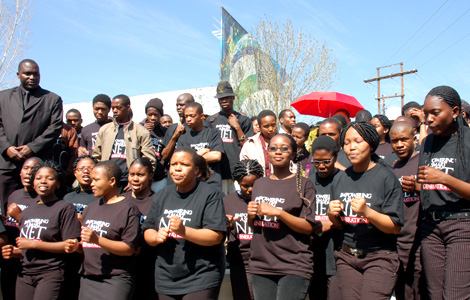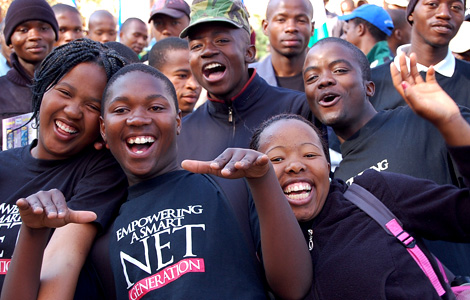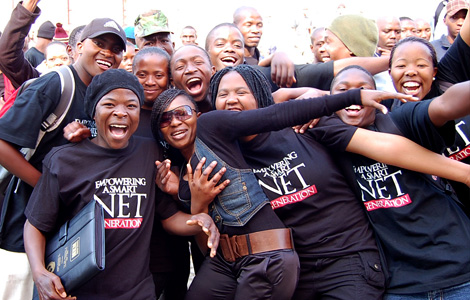Empowerment builds nations

Our world is a most unequal place. On the planet are 6.5 billion people but only about 900 million live in the 57 countries termed as developed or industrialized. In contrast about 5 billion people live in the developing world and the rest in transition countries. The developing world is made up of more than 120 low and middle income countries. The World Bank informs us that in the developing world more than 1.2 billion people live below the international poverty line, earning less than USD1 per day.

Throughout the history of mankind, poverty often emerged as a principal cause and a consequence of conflict. It must be obvious to all that the eradication of poverty has to come before we can create a safer and a more peaceful world.
And education is the most effective way to eradicate poverty quickly. That is because education empowers people and expands their range of choice. Educated people are more likely to be employed, and to remain employed. The better qualified they are the higher their income is likely to be.
By dismantling the barriers to education and increasing access to knowledge and skills, we will be helping to create more economic winners and to transform a culture of war into a culture of peace and progress.
According to UNESCO, Africa has the lowest primary education completion ratios in the world. In 19 African countries at least every second child does not complete primary school. In another 25 per cent of countries, only one in three pupils at the end of primary school moves on to secondary education. The low level of education is aggravated by an alarming rate in the “brain drain” from Africa.

Since 1990 Africa has been losing 20,000 professionals annually. There are more African scientists and engineers working in the US than in the entire African continent. The “brain drain” has placed Africa at risk of becoming home to even greater mass poverty.
Limkokwing University is working with African nations to liberate the vast store of African talents. We have been putting into practice the Smart Partnership principles adopted at Malaysia's Langkawi International Dialogue and the spin-off Southern Africa International Dialogue.
In all the places in Africa where we are setting up campuses we work closely with governments under the Smart Partnership concept. Our university in Gaborone, Botswana is the first Malaysian university and first Asian university to open a permanent campus in Africa. Our university adopts a participatory model in operating our campuses. We work with the local population and share our experiences, knowledge and skills. Most of our staff in our Botswana campus is Bastwana alumni of the university.
In Lesotho where we have just set up a campus we will replicate the success we have gained in Botswana. We will empower young Basotho with the skills of new technology and evoke in them a love for knowledge by igniting their creativity. We will create a new generation of smart and tech-savvy Basotho who will have the creative mindset, who are problem-solvers, who will fuel Lesotho's economic growth in new directions.

Through our investment in Lesotho we will help to save millions of foreign exchange which would otherwise flow out of the country, as well as generate jobs and increase business opportunities for the local people. By empowering Basotho students at home, we will be help to reduce the “brain drain” of precious human capital to other countries. We see a future where this campus in Maseru will be run by Basotho alumni.
By Professor Emeritus Tan Sri Dato' Dr Lim Kok Wing
Founder & President of Limkokwing University